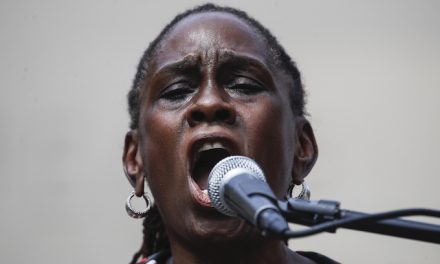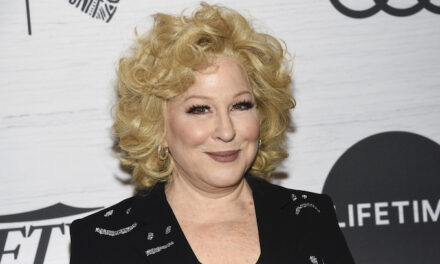As school districts and state legislators around the country debate the role of racism in classroom lessons — with many objecting to so-called “critical race theory” — some disputes are playing out in court.
School anti-racism policies and history lessons that delve into systemic racism are colliding with parents’ efforts to control their children’s education and accusations that the policies themselves are discriminatory.
In Virginia, a judge has thrown out a lawsuit in which parents sought to block schools from teaching lessons they viewed as efforts to indoctrinate students in critical race theory, but the legal battle continues
Five families sued the Albemarle County Public Schools alleging its anti-racism policy and middle school curriculum treat students differently based on their race and religion — a violation of their constitutional rights. In addition, the policy violates parents’ rights to control the upbringing and education of their children, according to the suit.
Albemarle County Circuit Judge Claude Worrell rejected the argument that the children had been harmed and announced after an April 22 hearing that he was dismissing the suit. A written ruling is pending.
Phil Giaramita, the schools’ strategic communications officer, said in a press release that the ruling supports the policy. The county school board has said critical race theory has not been added to the curriculum and there are no plans to do so.
“We obviously were pleased that the court agreed with our position that plaintiffs failed to show concrete harm to students from the policy’s implementation,” Giaramita said. “As the judge noted, there was no justiciable question for the court to decide, meaning there were no claims that could be decided based upon legal principles.”
After the hearing, David Cortman, senior counsel and vice president of U.S. litigation for Alliance Defending Freedom, a Scottsdale, Ariz.-based nonprofit that represents the nine parents and eight children in the suit, said the policy is racially discriminatory.
“This is disappointing, but the case is not over,” Cortman said in a statement. “Every student deserves to be treated equally under the law, regardless of their race, ethnicity or religion. Public schools cannot attack or demean students based on these, or any other, characteristics. We look forward to continuing to represent these parents and students on appeal.”
The suit, which was filed in December, asked for an order either stopping instruction that constitutes unlawful discrimination or permitting parents to opt their children out of the lessons without penalty. It also requested compensatory damages, including the cost of alternative education for their children incurred by some of the parents.
The Albemarle County School Board, Superintendent Matthew Haas and Assistant Superintendent Bernard Hairston were named as defendants.
“The policy purports to expose and silence racism,” the suit says. “Instead, it perpetuates that evil. Grounded in an ideology (sometimes called “critical race theory,” “critical theory,” or “critical pedagogy”) that views everyone and everything through a racial lens, the policy classifies students based on racial groups and identifies all people as either perpetually privileged oppressors or perpetually victimized members of the oppressed, denying agency to both. It imputes ‘racism’ exclusively to one racial group (Whites), assumes that racism infects all social institutions and demands that White people become ‘anti-racists’ working to dismantle those institutions.”
Academic theory or revisionist history?
Critical race theory is an academic theory developed by legal scholars beginning in the 1970s that says race is a social construction and systemic racism still permeates America’s laws and policies. Some use it as a tool to examine how institutional racism manifests in practices that can advantage certain racial groups and disadvantage other racial groups.
Its detractors claim critical race theory is anti-American revisionist history that indoctrinates students to be ashamed of their country, labels people as either oppressors or oppressed and discriminates against White children. They say the theory is based on Marxist ideology.
The debate over critical race theory — which includes disputes over its exact definition — has been raging across the country at state legislatures and school districts.
The Albemarle board released a statement last July saying the schools began offering a professional development program in 2015 for teachers known as Culturally Responsive Teaching. The board stressed that the program, which was founded on the concept that teachers can enhance their communication with students by better understanding their diverse life experiences and cultures, is not critical race theory.
“Reports to the contrary are false,” the statement says.
The board unanimously adopted the anti-racism policy and a statement of belief in 2019 that says, “The Albemarle County School Board and School Division reject all forms of racism as destructive to their mission, vision, values and goals.”
The policy calls for curriculum and instructional materials for all grade levels to be examined for racial bias and to reflect cultural and racial diversity; the implementation of an anti-racist curriculum; and opportunities for student cross-cultural and cross-racial interactions.
Kate Anderson, senior counsel and director of Alliance Defending Freedom’s Center for Parental Rights, said the policy is being implemented in a way that attacks some of the students based on their personal characteristics.
One student was shown a video that told her because she’s Latina, “she can’t live in a big house or get a good education or have a good job because of her race alone,” Anderson said. The girl’s father spoke to the principal and others at the school but his concerns were brushed off, she said.
Critical race theory also violates religious freedom rights by putting Christianity in an “oppressor category” and telling students they have to dismantle Christianity as an institution, Anderson said.
The parents universally agree with the idea that racism in every form needs to be eliminated and that students need to learn the truth about the country’s racial history, but “what’s coming out of CRT is not that,” Anderson said.
“What’s coming out of CRT is telling students that what they can achieve and who they are is based entirely on their race,” Anderson said.
In a separate lawsuit against the Albemarle County School Board, Alliance Defending Freedom is representing Emily Mais, a former assistant principal at Agnor-Hurt Elementary School, who alleges a racially hostile work environment forced her to resign. Mais alleges she was harassed and discriminated against for raising concerns about mandatory anti-racism teacher training that she says advocated for differential treatment based on race.
‘Truth of our history’
There has been pushback against attempts to ban or limit discussions in schools about racism.
Florida Gov. Ron DeSantis last month signed into law a bill to ban critical race theory in K-12 schools. It was immediately challenged in federal court by a group of plaintiffs, including a high school teacher and a college professor.
In South Dakota, Gov. Kristi Noem signed an executive order last month to ban critical race theory in state schools after state legislators rejected a similar bill. The American Civil Liberties Union described the move as censorship and in violation of First Amendment protections for academic freedom.
Teachers, parents, students, the National Education Association-New Hampshire and Local 8027, AFT-New Hampshire, AFL-CIO are suing to block enforcement of the Right to Freedom from Discrimination in Public Workplaces and Education law, which they allege is unconstitutionally vague about what concepts can be taught.
The law, which went into effect in New Hampshire on June 25, prohibits schools from teaching that one identified group — based on age, sex, gender identity, sexual orientation, race, creed, color, marital status, familial status, mental or physical disability, religion or national origin — is inherently superior or inferior to people of another identified group. Anyone who alleges harm from the teaching of a banned concept can file a lawsuit seeking damages.
As an example, any parent, co-worker or neighbor who sees a teacher’s lesson plan with the name of a book perceived as being prohibited could sue the teacher’s school, school district and potentially the teacher, according to the suit.
“While one may teach the ‘historical existence’ of these concepts — albeit only ‘as part of a larger course of academic instruction,’ whatever that may mean — the ability to teach the continuing relevance of this history, and make it personally relevant, to students is unclear,” the suit says.
“Can one discuss the reasons why in our country’s entire history only a single African American has ever been elected the president of the United States and no woman ever has? Can one teach about the proven fact that racial and other unconscious biases shut the doors of opportunity for so many?”
In Wisconsin, a bill was introduced last fall that would prohibit race or sex stereotyping in instruction to students and in training provided to employees of school boards and independent charter schools. The sponsor, Republican Rep. Chuck Wichgers, said critical race theory was among the prohibited subjects.
The Wisconsin Legislature passed the bill but it was vetoed earlier this year by Gov. Tony Evers.
“I am vetoing this bill in its entirety because I object to creating new censorship rules that restrict schools and educators from teaching honest, complete facts about important historical topics like the Civil War and civil rights,” Evers said.
Wisconsin Faith Voices for Justice, a statewide interfaith education and advocacy organization, was among the groups that fought the bill. Its members represent a wide range of religious backgrounds, according to Rabbi Bonnie Margulis, the executive director.
“I think we all agree that we want all of our children regardless of their race, their ethnicity, where they live in the country, to get a good education that’s going to enable them to thrive in the 21st century,” Margulis said. “What I hope is being taught in our schools is the truth of our history. And the truth of our history has good things in it and has bad things in it, and we have to confront both and we have to be honest and truthful about that.”
She also said critical race theory is a specter that’s being raised to stoke people’s fears.
“We can’t deal with the problems in our society today unless we understand where they came from,” Margulis said. “I hope that teachers are teaching the truth to our kids in an age-appropriate way.”
Copyright 2022 United Press International, Inc. (UPI). Any reproduction, republication, redistribution and/or modification of any UPI content is expressly prohibited without UPI’s prior written consent.
—-
This content is published through a licensing agreement with Acquire Media using its NewsEdge technology.



















I think we can all agree that history taught should be true. Unfortunately we don’t all agree on what is true (1776) and what is false (1619).
YET again, the ACLU comes down on the WRONG SIDE OF This…
If we started teaching criminal race theory. Democrats should would put a stop to it.
Criminal race theory. SO SPOT ON.